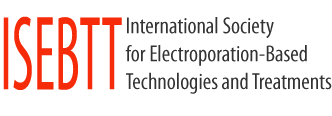Due to the aging of the population, the treatment of neurodegenerative diseases such as Alzheimer disease (AD) is a major public health issue. Despite the development of therapeutic molecules targeting the proteins involved in the disease (β-Amyloid, Tau), this strategy is limited in its development leading to the marketing by the absence of specific delivery of these molecules in the brain. Moreover, the inability of these molecules to cross the blood-brain barrier (BBB) is another major limitation. Current methods for intracerebral drug delivery induce disturbance of the BBB throughout the volume of perfused tissue and cannot be used for targeted delivery at the brain level. In this context, the notion of active delivery is of great interest because it implies both effective formulation and better targeting. The specific delivery of therapeutic molecules to the brain continues to be a major challenge for the treatment of AD.
Ultrasound contrast agents, consisting of gas microbubbles, are used in diagnosis during contrast echography. In recent years, new promising methods for the local delivery of drugs or nucleic acids based on the use of these microbubbles have been proposed. This possibility, in combination with ultrasound (i.e., sonoporation), provides unprecedented alternatives for achieving effective and non-invasive therapeutic action. The term “sonoporation” denotes a process by which the activation of microbubbles by ultrasound near biological barriers (e.g., BBB) transiently increases their permeability and thus allows extravasation and penetration of therapeutic molecules into the target tissue without tissue damages. By virtue of this extravasation, the bioavailability of these molecules in the target tissue is increased, thus improving the therapeutic index.
This project aims to develop a sonoporation protocol for the transendothelial delivery of therapeutic molecules using an in-vitro BBB model.
Objectives:In this context, the candidate will have to:
- Develop and characterize microbubbles with Lab’s chemists and physicists;
- Optimization of protocol for transendothelial delivery of therapeutic molecules;
- Determine the molecular and cellular mechanisms of transendothelial delivery of drugs.
Candidate profile
- PhD having defended his thesis abroad for less than 7 years; Applications for English-speaking candidates will be prioritized.
- Skills in physiology of BBB or endothelial barrier;
- Skills in cell biology, molecular biology and biochemistry;
- Synthesis and editorials skills are required.
Other conditions:
- State of health must enable you to effectively perform the functions for which you are a candidate;
- Enjoy your civic rights;
- No have been convicted in the Criminal Record No. 2, incompatible with the performance of duties;
- To be in a regular situation with regard to the obligations of the national service.
Net salary: Post-doctoral grant from François-Rabelais University: 2 072,12 Euros/month
Budget for bench fees: Inserm grant of J.M. Escoffre.
Supervisor – Dr. J-M Escoffre (jean-michel.escoffre@univ-tours.fr)
Send your application form to jean-michel.escoffre@univ-tours.fr
- 1 curriculum vitae;
- 1 cover letter;
- 2 referee letters.
